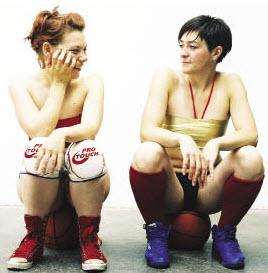I seem to recall that GCSE English involved a lot of identikit essays about the ‘message’ in various novels, plays and poems. For quite some time I was under the impression that writing involved hiding a needle of purest message in a haystack of plot and character and the more debate over the meaning, the better the book.
Nic Green’s stirring and very moving Trilogy, at the Barbican last weekend, wears its message firmly on its often naked sleeve. The three parts seek to rescue and rehabilitate the feminist cause from the ruins of an age in which pole dancing is considered to be ‘empowering’ and grown women covet the shape of the hips of a skinny 12 year-old boy. An ambitious undertaking in just 160 minutes but one which somehow succeeds. Go to www.makeyourownherstory.org and you will see what I mean.
It is difficult to classify Trilogy in GCSE terms. It is not a work of fiction as such but neither is it polemic or docudrama. It is an artistic response to deeply felt social injustice which entirely avoids sanctimonious preaching and erecting a yurt on the moral high ground.
Nakedness, as supposed to nudity, is important in this piece and it is surprising how swiftly the taboo of watching a stranger undress evaporates. This may be because all five performers seem so comfortable ‘in their own skins’ or it may be the fascinating experience of watching the human body dance without the fetters of costume. Nic Green and the excellent Laura Bradshaw whirl and stomp through grueling routines with a mesmerizing, energetic grace. These dances are interspersed with anecdotes and ideas from Green’s own life and the ways in which these experiences provoked the performance on stage.
The first part of Trilogy involves a spectacular communal, naked dance in which a crowd of women volunteers of all shapes and sizes crowd onto the Barbican’s huge stage in such numbers that they seem likely to spill into the delighted audience. The second part is a deconstruction of Town Bloody Hall: a famous feminist debate from 1971 involving, among others, Norman Mailer and Germaine Greer.
The final section is a reprise and consolidation of ideas previously explored, a brief manifesto and a meditation on Blake’s Jerusalem culminating in a naked singing of the hymn where women (from the audience this time) join the cast on stage. If you get the chance, go and see it: if you’re a man you’ll wish you weren’t so you can join in.
It would be amazing to see it on a GCSE syllabus.





